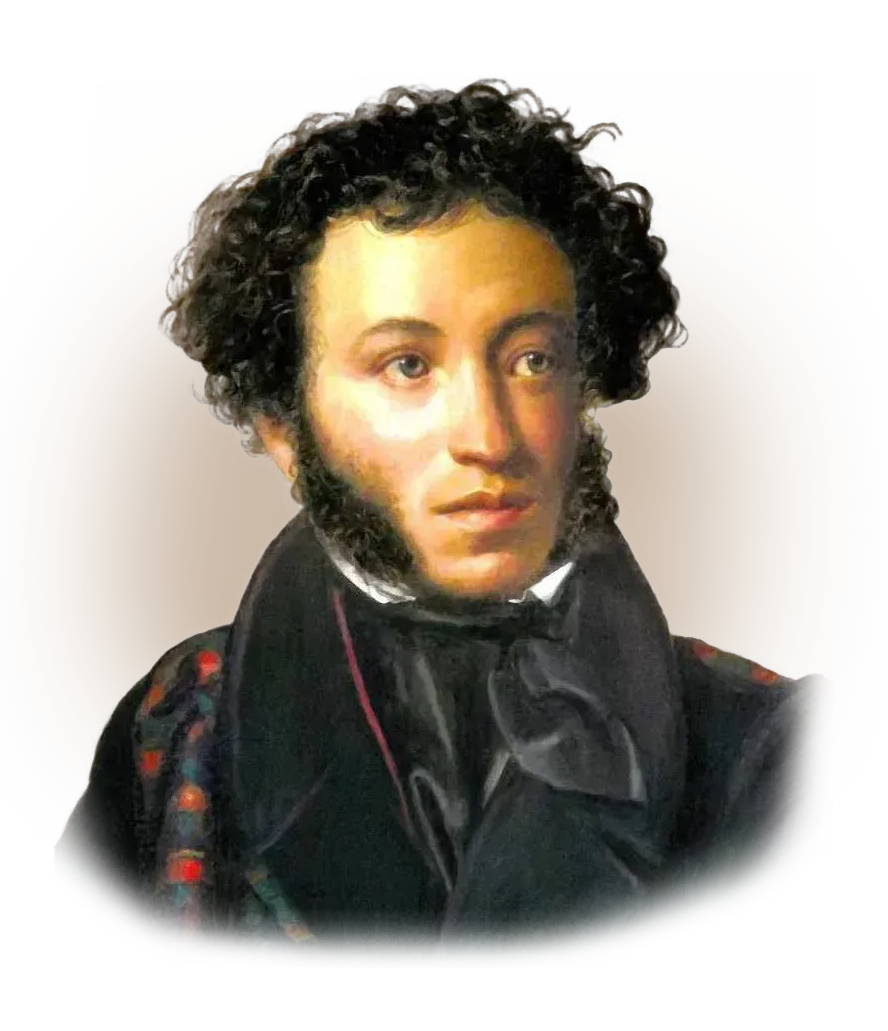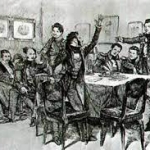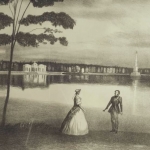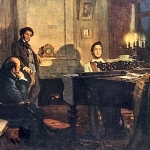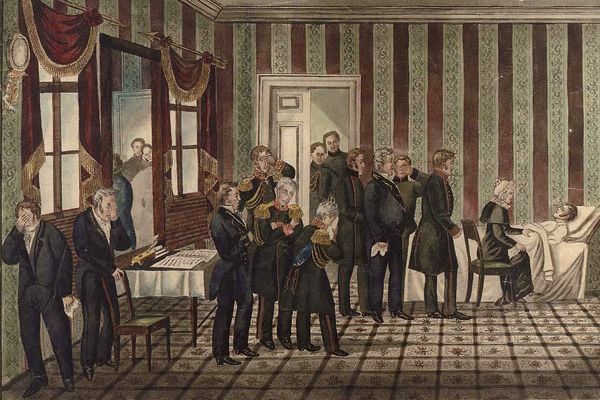
06.01.2023
Pushkin and Onegin get closer at the time when their first youth, full of charms and disappointments, passes. They are brought together by a critical attitude to life, fatigue from the empty social fuss
Similarities
1) The environment in which they grew up
Both heroes spent their young years in St. Petersburg, both belong to the nobility, move in high-society circles:
“Onegin, my good friend,
Born on the banks of the Neva…
…I once shone there too…”
2) Attitude to the conventions of light
Pushkin and Onegin get closer at the time when their first youth, full of charms and disappointments, passes. They are brought together by a critical attitude to life, fatigue from the empty social fuss:
“The conditions of light overthrowing the burden,
How is he, lagging behind the hustle and bustle,
I became friends with him at that time.
I liked his features,
his involuntary devotion to Dreams,
Inimitable strangeness
And a sharp, chilled mind.
I was angry, he was sullen;
We both knew the passion game;
Life tormented both of us;
In both hearts, the heat faded;
Malice awaited both
Blind Fortune and People
In the very morning of our days.”
3) Attitude to Tatiana
Tatiana is Pushkin’s favorite heroine, he calls her a “sweet ideal”. He confesses his love to her:
…Forgive me. I love it so much
My dear Tatiana…
The poet surrounds her with the epithets “sweet”, “gentle”, “poor”, calls her “my soul”, accompanies her with adjectives and nouns with diminutive suffixes.
Loves Tatiana and Onegin. At the first meeting with the Larins of their two sisters, he singles out Tatiana.
“Are you really in love with a smaller one?
… I would choose another one,
If I were like you, a poet…” he says to Lensky, having learned about his love for Olga.
At the end of the novel , Onegin directly confesses his love to Tatiana:
“I know: my age is already measured;
But to prolong my life,
I have to be sure in the morning,
That I will see you in the afternoon…”
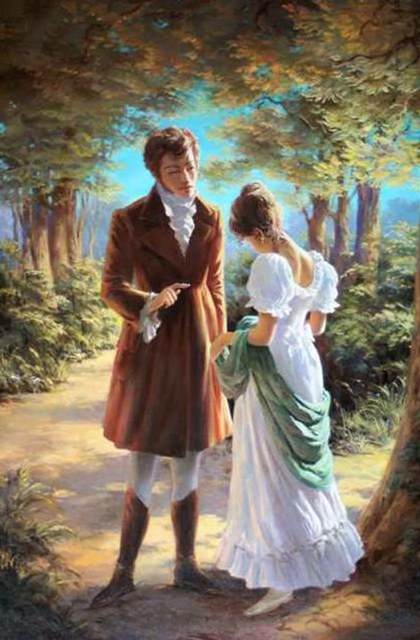
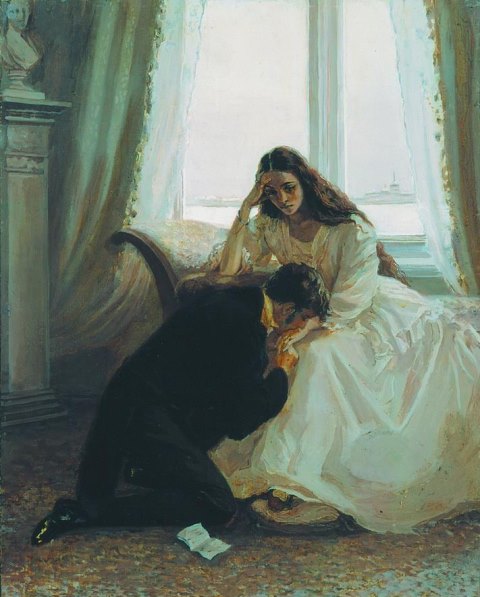
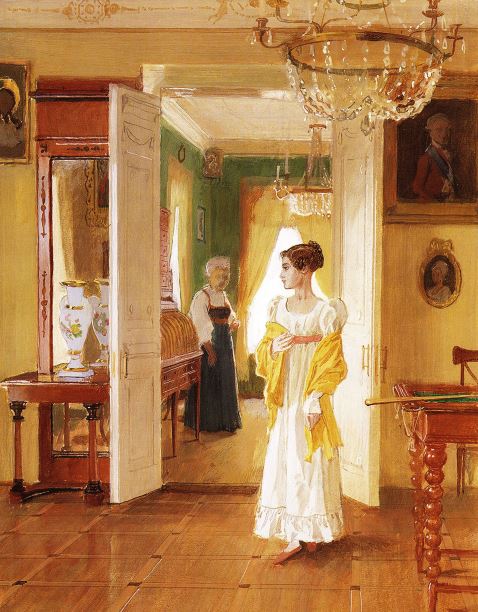
Differences
1) Education
Pushkin received a brilliant education. He studied at the first experimental institution for the noble elite, the Imperial Tsarskoye Selo Lyceum, where the best teachers of their time taught.
In addition, the poet was constantly engaged in self-education. He read fluently in several languages, knew the works of ancient authors and French enlightenment philosophers very well.
Curious and lively character directed Pushkin to the most unexpected places. Arriving in a new city, the poet was in a hurry to meet people, visit archives, visit historical monuments. He was constantly learning something new and subjected any information to serious reflection.
Onegin – Onegin’s education is superficial. He knows exactly as much as it takes to make an impression in a conversation, but he has not studied anything systematically and deeply:
“Onegin was in the opinion of many
(resolute and strict judges)
A learned fellow, but a pedant:
He had a lucky talent
Without compulsion in conversation
Touch everything lightly,
With the scholarly air of a connoisseur
To remain silent in an important dispute
And to excite the smile of the ladies
The fire of unexpected epigrams.
Latin is out of fashion now:
So, to tell you the truth,
He knew quite a lot of Latin,
To parse epigraphs,
Talk about Juvenal,
At the end of the letter, put vale,
Yes, I remembered, though not without sin,
There are two verses from the Aeneid.
He had no desire to rummage
In chronological dust
Everyday life of the earth:
But the days of the past anecdotes
From Romulus to the present day
He kept it in his memory.”
2) Attitude to the theater
Pushkin idolizes the theater, creatively empathizes with every premiere:
“A magical land! there in the old years,
Satires the bold ruler,
Fonvizin, a friend of freedom, shone,
And the enterprising Prince;
There are involuntary tribute lakes
People’s tears, applause
Shared with the younger Semenova;
There our Katenin resurrected
Cornelius is a majestic genius;
There he brought out a sharp Shakhovskoy
Their comedies are a noisy swarm,
There Didlo was crowned with glory,
There, there under the canopy of the wings
My younger days were rushing
Onegin – Onegin is indifferent to art. He visits the theater only because it’s fashionable:
“Everything claps. Onegin enters,
He walks between the chairs on his legs,
Double lorgnette obliquely induces
To the lodges of unknown ladies;
I looked at all the tiers,
I saw everything: faces, headdress
He ‘s terribly unhappy;
I bowed to the men from all sides
, then to the stage
In great distraction I looked,
Turned away — and yawned,
And said: “It’s time for everyone to be replaced;
I endured ballets for a long time,
But I’m tired of Didlo, too.”
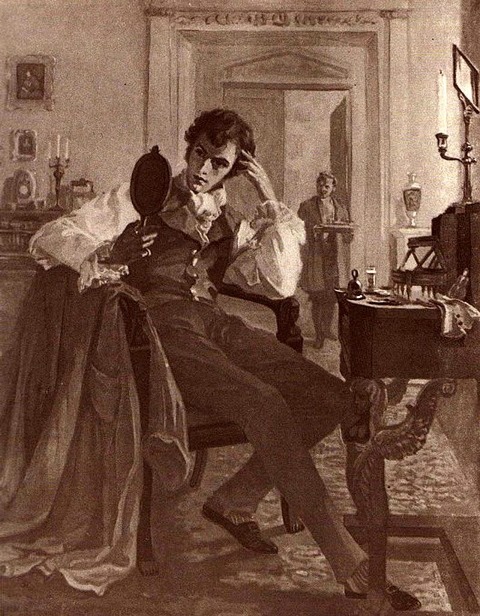
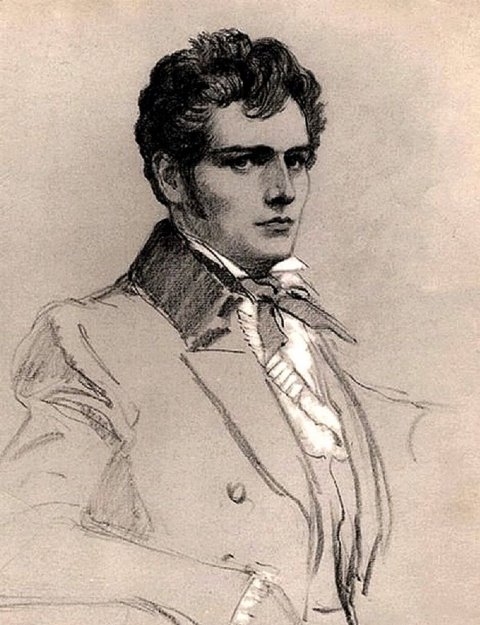
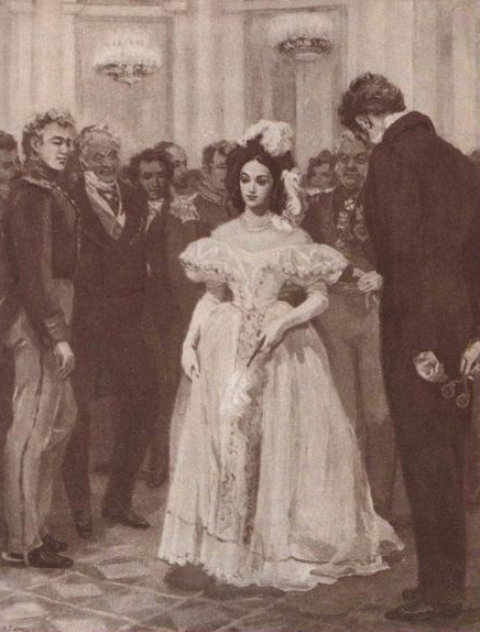
3) Attitude to love and women
Unlike Onegin, Pushkin was sincere in each of his infatuations. He wasn’t hypocritical, he wasn’t playing with a woman’s soul. Even Pushkin’s sweet coquetry is noble and touching.
He calls women “my goddesses” and sees them as the ideal of beauty. As a poet, Pushkin worships her.
But he is also disappointed because the deep feeling that visited him on the eve of the start of work on the novel was betrayed.
Female love for young Onegin is a coveted prey. He resembles a hunter chasing a victim. Love occupies all his thoughts:
…Everything else that Eugene knew,
I don’t have time to retell;
But what was his true genius,
What did he know more firmly than all sciences,
What was the difference for him
And labor, and flour, and joy,
What took the whole day
His yearning laziness, —
There was a science of tender passion,
Which Nazon sang…
The hero does not feel deep attachments, the result is important
4) The purpose of life
Pushkin was clearly aware of his poetic destiny. The poems “The Prophet”, “The bookseller’s conversation with the poet”, “Does not require a poet yet…”, “Monument” and others are written about this:
And for a long time I will be kind to the people,
That I have awakened good feelings with a lyre,
That in my cruel age I glorified freedom
And he called for mercy to the fallen…
(“Monument”)
Tired of idleness, Onegin tries to get to work, but nothing comes out. He has nothing to say:
…Onegin locked himself in at home,
Yawning, he took up the pen,
I wanted to write — but hard work
He was sick; nothing
It did not come out of his pen,
And he did not get into the shop perky
People about whom I do not judge,
Because I belong to them.
